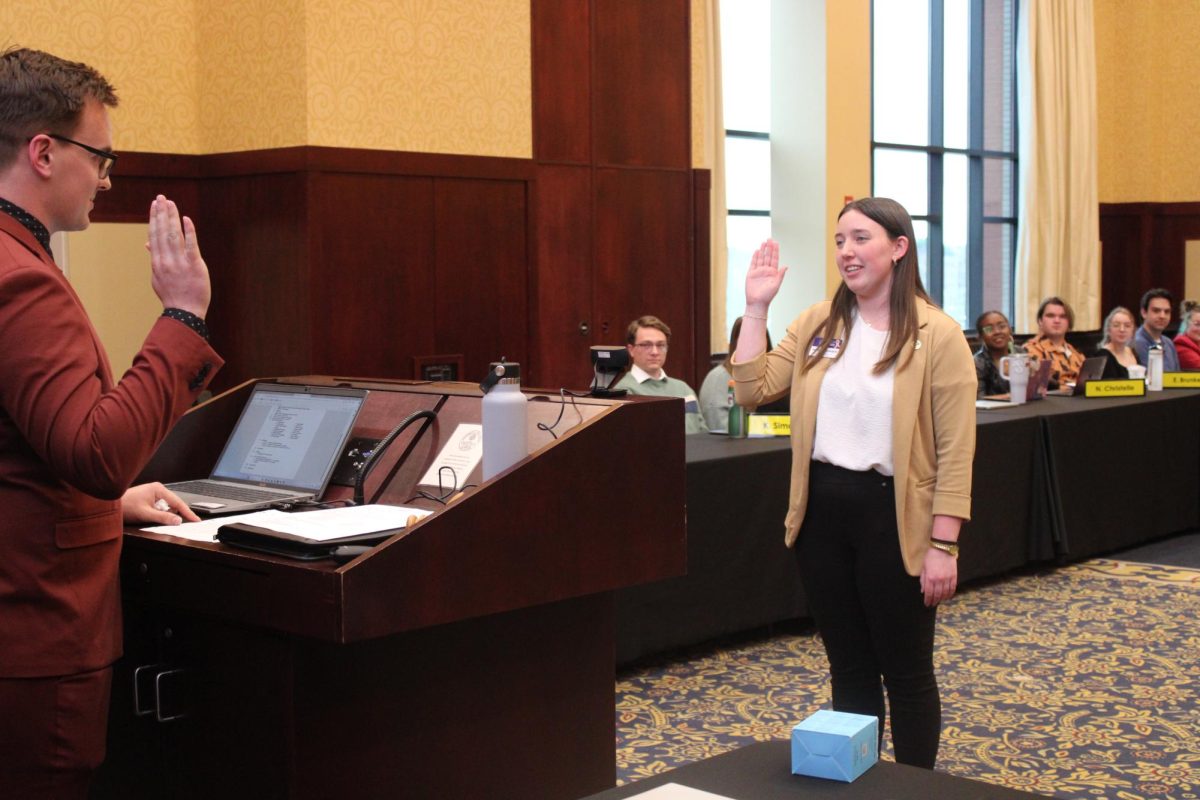When recalling the death of a friend in high school due to a car crash, sophomore Cathy Gardapee summed up what most students feel when one of their peers dies.
“We were young and we didn’t expect someone our age to die,” Gardapee said. “You expect your grandparents to die. You don’t expect your friends to die.”
Gardapee’s feelings about death were the basis of a study entitled “Peer Death Experiences,” which focused on how UW-Eau Claire students coped with the death of one of their peers in their past. The study was conducted as a collaborative effort between two psychology students – sophomore Laura Carter and junior Sara Berkowitz – and Lori Bica, assistant professor of psychology.
With the recent deaths of students in Eau Claire, the study can show those who haven’t lost someone how others are feeling about their recent loss, Carter said.
“It’s ironic and appropriate that this study is completed at this time,” Carter said.
This study is important for people – teachers, professors and parents, who work with adolescents Carter said. “So they have a better understanding of how people feel,” Carter said.
The study correlated the conditions surrounding death and how the subjects view mortality after exposure to death. Questions relating to the independence, propensity toward taking risks, relationships with others and feelings of mortality were also explored.
The questionnaire included a question asking the cause of death of the deceased peer. One possible answer was “terminal illness.” said Carter said those who chose this option often felt a lack of control over the situations of the death and made no major behavior changes. Those who knew a peer who died from a fatal accident are more likely to make a change in their lifestyle habits.
Carter, Berkowitz and Bica asked 250 students demographic questions. The questionnaire was developed to determine the intensity of the participants’ experience with the death of a friend or classmate during their adolescence, and the possible behavior changes that might occur after a death.
Of the 250 students, 66 percent reported they experienced the death of a peer during their adolescence.
After viewing the results, Carter wasn’t surprised that the most significant finding suggested that the degree of closeness the peer has to the deceased would affect the period of mourning. The loss of a peer also appeared to make the subject a more independent person, she said.
After the questionnaire was completed, the students were given the opportunity to consult with a counselor.
Carter said she hopes to present the study at a psychology conference next year.






